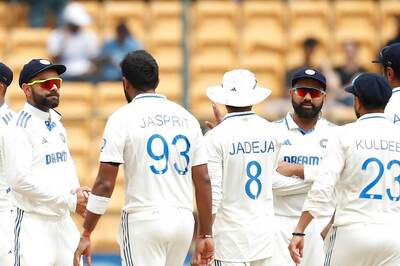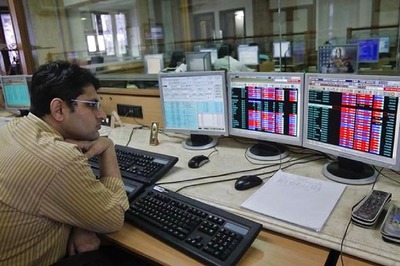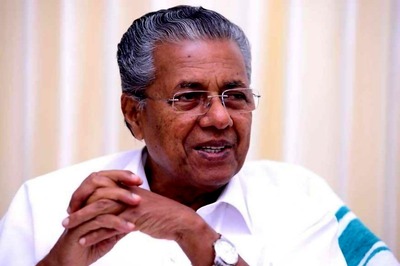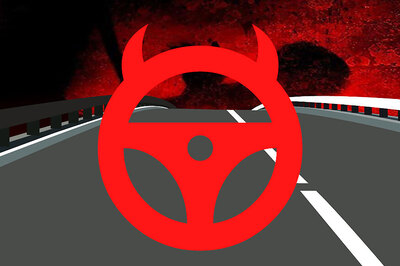
views
Sri Lanka, a country that was seen at the time of independence from Britain in 1948 as a first potential case of development success in the third world, surprisingly transformed subsequently into a state of political conflict and consequent armed struggles, and now into a Socio-Eco-Poli Mojo (a complex governing crisis similar to a pickle).
As of today, it has a President on the run after being almost non-functional for three months, since on July 9 he fled the official residence and nominated that the Speaker of the Parliament (the 3rd Citizen of the country) shall be his spokesperson until he formally sends in his resignation by Wednesday. The Speaker was hand-picked by the Rajapaksas and he is a person who cannot think for himself. Then it has a Prime Minister, as per the Section 37.(1) of the Constitution who should be the person to “Exercise, perform and discharge of duties and functions if the President is of the opinion that by reason of illness, absence from Sri Lanka or any other reason”. Unfortunately, this Prime Minister does not have any other single party member holding a seat in the Parliament. Therefore, a unique political drama will unfold in the coming weeks whilst the citizens of the country are struggling without the supplies of essentials for over three months.
History in brief
The economy of Sri Lanka at independence in 1948 was better and more prosperous compared to almost all of its Asian neighbours and it was second only to Japan. The natural talent, inheritance, and colonial influence included a high human development standard, well-developed infrastructure, a well-functioning judiciary, and a democratic political system of the Westminster type. Due to the prosperous primary export crops developed during colonial times, and thanks to its traditional agricultural practices, Sri Lanka’s national income per head has been one of the highest in Asia.
Sri Lanka’s achievements in human development have been exceptional amongst developing countries and have been on par with those of developed countries. Plantation agriculture, which had become the backbone of the Sri Lankan economy, accounted for 88% of export earnings, 37% of GDP, and 27% of employment at the time of independence (Snodgrass 1966). The economic prosperity based on plantation agriculture improved further due to its favourable weather, workmanship, and world market conditions for primary exports of the country, particularly tea, rubber, and coconuts, in the first half of the 1950s. The service sectors, specifically banking, trade, insurance, transport, and district administration systems have been closely associated with its success.
In referring to the favourable initial conditions as well as the peaceful transfer of power from colonial rule to independence, Snodgrass (1999: 89) questioned: “What more could a newly independent nation want?” Many viewed Sri Lanka as the first potential case in development success among the newly independent nations at the time. Now that Sri Lanka has reached its 74th year of self-governing, it has become one of the poorest countries in the region.
What could have gone wrong
For many years, Sri Lanka’s national expenditure has exceeded its national income, and its production of tradable goods and services has been inadequate. Most of the large infrastructure projects undertaken during the last 20 years have been politically motivated. Even today, after several years of completion of those projects, most of those would not qualify and justify in a simple PEST or PESTLE analysis.
The cost of the infrastructure projects has been overestimated, carried out through commercial rate loans and therefore the sustainability of repayments has been always in doubt from the beginning. If someone who was involved in approving these project loans could justify those then that would be highly enlightening. Otherwise, why did not the government consider soft loans or BOT projects instead shall be asked always.
Whilst the above financial abuse is happening at the State level, the Tax Justice Network’s ‘Illicit Financial Flows Vulnerability Tracker’, has found that Sri Lanka’s illicit cash (flowing through trade, foreign direct investment, bank deposits, and the like) commonly ends up in Singapore, Hong Kong, Maldives, Seychelles, Thailand, Bangladesh, Mauritius, India, Malaysia, and the British Virgin Islands.
According to Global Financial Integrity, the annual pillage engineered by Sri Lanka’s traders far exceeds agricultural export earnings (US$2.72b in 2021), the import cost of medicines (US$882.5 million), and most of all, the US$3.74b fuel tab (including US$2.84b for refined petroleum, and US$625.1m for crude oil), that year. Forex spirited away illegally in a year by traders would be enough to double the national food imports, including cereals (such as milled rice and corn), dairy products, and sugar (US$1.66b in 2021).
Billions in remittances of Sri Lankans slaving overseas to keep the country afloat are also misused by businesses through commercial banks for all manner of imports including intermediate goods (such as textiles, chemicals, and agri inputs), and personal luxuries such as yachts, helicopters, and Lamborghinis.

Every year, Rs 1.471 trillion is lost, which is equivalent to 28 times the Samurdhi payment for about 1.8 million beneficiaries (people falling below the poverty line). Although the politicians are paying the price for the economic crisis, those exploiters also should be held accountable. A complete overall change of the entire framework is the need of the hour. Otherwise, there will never be a systemic or paradigm change with this type of exploitation from all sides. Sri Lanka will never go back to the 1948-level of state sector discipline and judicial independence without major reforms, which can be very painful and have an impact in a long term.
Data for the first six months of 2022 show that the exports have been $1.0 billion per month, and a total of $6.0 billion during those six months.
However, what was received by the country is $600mn – $700mn only. It appears that around $300mn – $400mn of revenue in the country is lost through this scam each month. This means a colossal loss of foreign exchange to a tune of around $3bn – $4bn annually.
Whilst we are pointing fingers at politicians for their corrupt practices, here is another level of corruption, negligence, misappropriation, and sabotage of the national economy by the public sector officers in partnership with the private sector establishments.
It is hard to believe that no one has monitored and spotted this before. It has to be a known fact to all and easily found too. Then, those public sector officers and private sector establishments also should be held responsible and liable for these under the laws of financial crimes and misappropriation of public funds.
Plug or else perish: A tip to the IMF for consideration
This finding alone proves why the digitalisation efforts of the public sector have never seen the light of day and all previous efforts have been derailed and disrupted at some point by those perpetrators, systematically.
Therefore, in Sri Lanka until and unless there is a strong will to stop the system of corruption from the top to the bottom of the bureaucratic process and from big to the small private modus operandi, it will be very hard to assume that there will never be a repeat of this kind of bankruptcy situation once again in the near future.
Sri Lanka has been to the IMF over 16 times before, (this being the 17th occasion), and has breached the agreed conditions on 10 of those 16 occasions. That is a serious offence and an unacceptable record.
Therefore, I personally believe it is fair for the IMF to introduce a new condition along with the “good governance or anti-corruption clause” that the government of Sri Lanka should agree to a certain sum out of the bailout package shall be spent towards “Digitalisation of the public sector and connecting the private sector transactions through a Blockchain platform for all future engagements internally and internationally. This activity to be completed strictly within a specific time period in close consultation and monitoring of the IMF or by its designated entity”.
Therefore, the design of this new IMF programme could shape economic policymaking for the next generation, and along with it Sri Lanka’s last possible chance for serious economic breakthrough and prosperity.
The substance of this new programme is far too important to be left solely in the hands of the grey suits at the IMF, treasury, and central bank. All sections of society— youth in Aragalaya (on street protest “GotaGoGama”), government backbenchers, parliamentarians in the opposition, private sector, civil society, and academia — must think hard and work harder to shape this historic programme.
What should happen to those perpetrators
All those political and public sector perpetrators should be tried through a very independent special judiciary with a live broadcast of the hearing and a strict timeline to conclude. The process should initially take on obvious criminal offences with sufficient evidence to conclude the cases fast, whilst the other cases are to be filed and heard subsequently as the information/forensic evidence/witness gathering progresses.
It should be an exemplary court hearing through which Sri Lanka should aim to win the confidence and support of the whole world that it has lost over a period because of poor international relationships in recent times, a corrupt political system for several decades, and unacceptably low standard of performance by the public sector due to politicisation.
This enquiry process need not be seen as personal attacks and should not leave room for such actions either. It should be conducted in an honourable manner with the good intentions of correcting the corrupt system and promoting good governance. Thereby, Sri Lanka should never be a burden to the IMF, WB, the regional countries, or other friendly nations in the future.
In the end, this should ideally be a case study for future generations, both local and international, in order to avoid a self-made or man-made economic disaster, which unimaginably happened to a country that is blessed with so many natural advantages and natural resources to be naturally prosperous.
Shashi Dhanatunge is a former Sri Lankan bureaucrat. The views expressed in this article are those of the author and do not represent the stand of this publication.
Read all the Latest News, Breaking News, watch Top Videos and Live TV here.




















Comments
0 comment